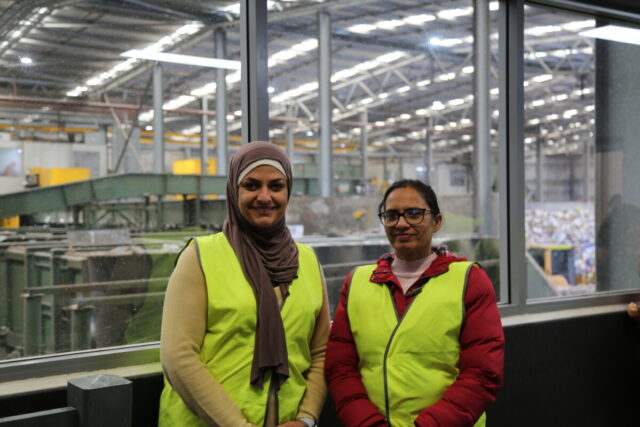Last month the City of Canning ran a series of workshops and tours at a Materials Recovery Facility to help deepen Canning’s Culturally and Linguistically Diverse (CaLD) community’s waste knowledge and reduce recycling contamination.
Working in partnership with four of the city’s cultural ambassadors, Yaping Jiang, Haneen Shehadeh, Vijayakumar Vijayaratnam and Sadhana Bose, the project saw 112 people attend the series of workshops and tours from a range of CaLD communities including Chinese, Arabic, Malaysian and Indian.
Facilitated by Sharka from Donut Waste, each workshop was tailored to the specific group to ensure participants got the most out of the sessions.
The workshops focussed on educating participants about gifting unwanted items, recycling only the five accepted materials, composting food waste, avoiding excess packaging and taking hazardous items that don’t belong in kerbside bins to a drop-off point.
To better understand people’s confidence in waste sorting, participants were surveyed before and after the activities. Before the sessions 12 percent of people stated they were ‘very confident’ in their waste sorting and recycling behaviours, positively following the sessions this number increased to 78 percent.
Mayor Patrick Hall said the work the city’s strategic waste team is doing in waste education is fantastic, particularly within the CaLD community.
“In Canning, 51 percent of our residents are born overseas, whilst 43 percent speak a language other than English at home so it’s really important that we are helping to educate these groups on correct waste disposal behaviours,” he said.

“The cultural ambassadors have been pivotal in reaching these communities and encouraging them to come along and learn how they can make positive changes to their waste disposal behaviours.”
Post-survey results revealed some key learnings for participants including responsibly disposing of batteries and e-waste at designated drop-off points, avoiding bagging recyclables, removing lids from bottles and containers before recycling, and keeping soft plastics out of recycling bins.
This project was possible thanks to a WasteSorted Grant, supported by the Government of Western Australia and the Waste Authority.














